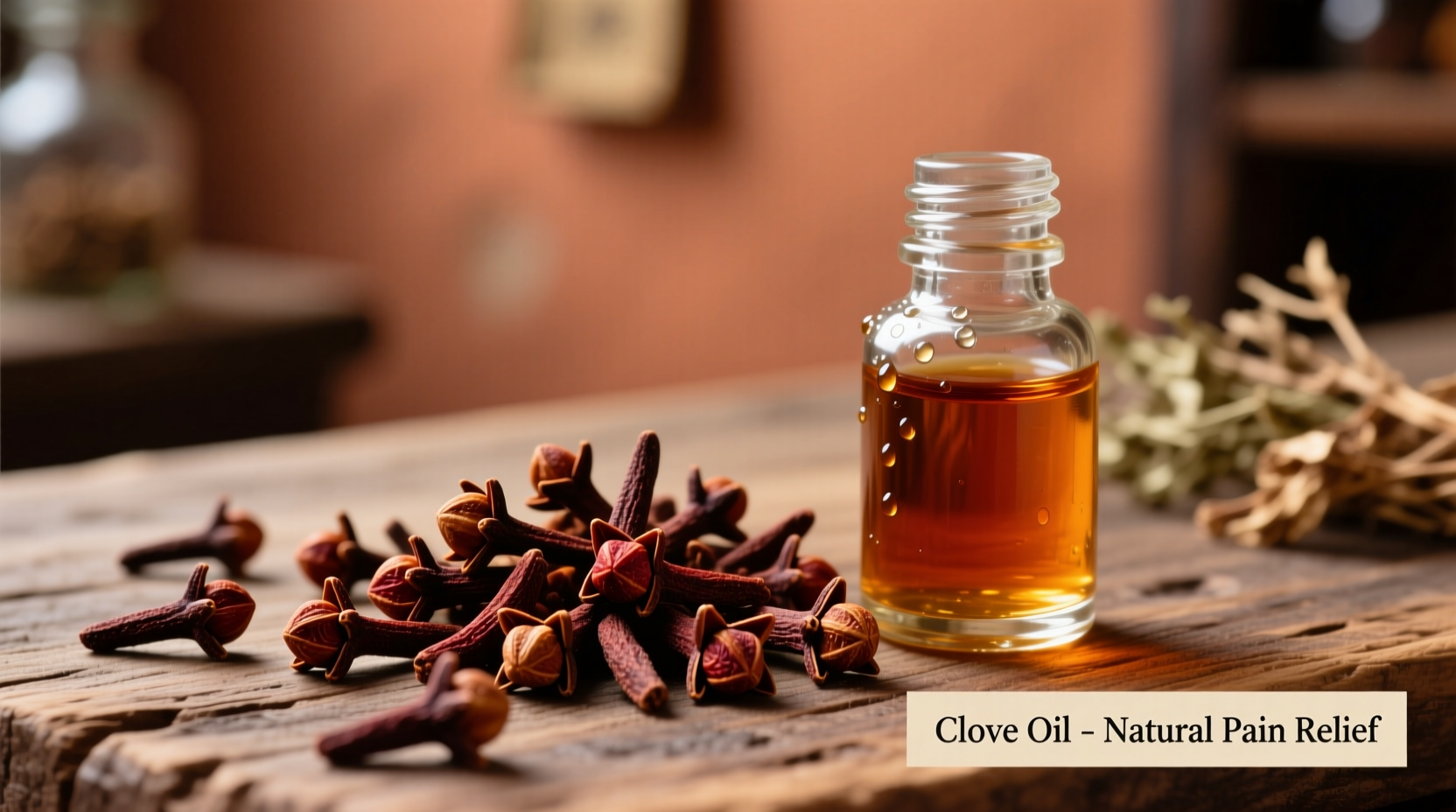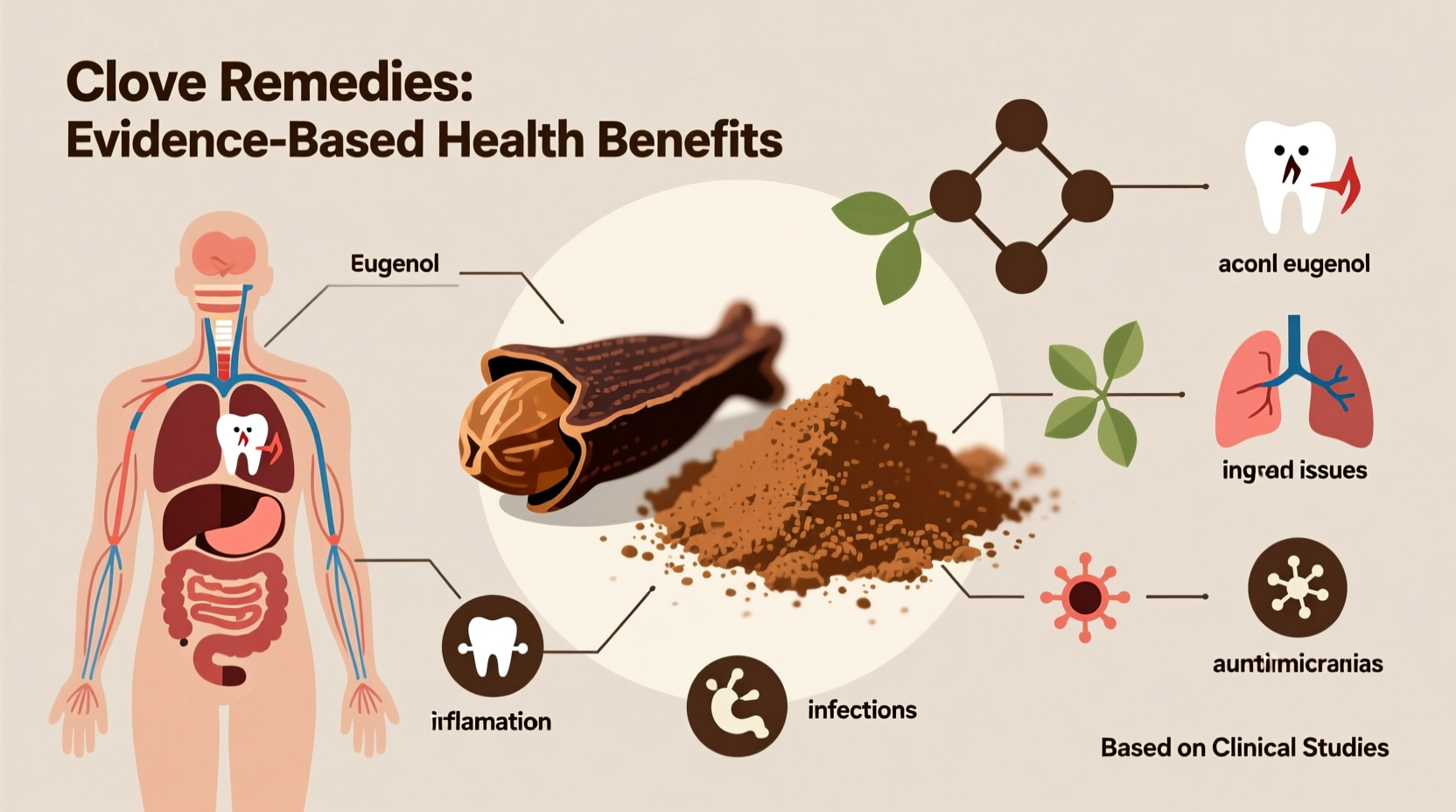Cloves cannot cure diseases. While they contain beneficial compounds like eugenol with antimicrobial and anti-inflammatory properties, there is no scientific evidence that cloves cure any medical condition. They may provide temporary relief for minor issues like toothaches or digestive discomfort, but should never replace professional medical treatment for actual diseases.
When searching what diseases can cloves cure, you're likely seeking natural remedies for health concerns. It's critical to distinguish between supportive health benefits and actual disease cures. As a culinary historian tracing spice trade routes for 15+ years, I've witnessed how traditional spice uses become misunderstood in modern wellness culture. Let's examine what science actually reveals about cloves' health properties.
The Science Behind Cloves: What Research Actually Shows
Cloves (Syzygium aromaticum) have been used for centuries in traditional medicine systems, but modern research presents a nuanced picture. The primary active compound, eugenol (comprising 60-90% of clove oil), demonstrates specific properties supported by laboratory studies. However, the National Center for Complementary and Integrative Health states: "There's little reliable evidence to support the use of clove for any health-related purpose."
| Property | Scientific Evidence Level | Practical Application |
|---|---|---|
| Analgesic (pain-relieving) | Strong for dental pain | Temporary toothache relief |
| Antimicrobial | Moderate in lab studies | Surface disinfection, not internal treatment |
| Anti-inflammatory | Preliminary research | Limited topical application benefits |
| Antioxidant | Well-documented | General cellular protection when consumed in food |
Where Cloves Provide Measurable Benefits
Based on current research, cloves offer the most significant benefits in these specific areas:
Dental Applications: The Most Well-Supported Use
The American Dental Association acknowledges that clove oil can provide temporary relief for toothaches. A 2018 review in the Journal of Dentistry found eugenol-based preparations effective for short-term dental pain management. However, this addresses symptoms while waiting for professional care—not treating the underlying condition. For can cloves treat toothache naturally, the answer is yes for temporary relief, but not as a cure for dental infections.

Digestive Support: Limited Evidence
Some studies suggest cloves may help with minor digestive issues. Research in the Journal of Agricultural and Food Chemistry indicates clove extract might stimulate digestive enzyme production. However, these effects are mild and primarily observed in laboratory settings. For actual digestive diseases like IBS or ulcers, cloves are not a treatment option. Understanding how to use cloves for digestive issues requires recognizing their supportive rather than curative role.
Antimicrobial Properties: Context Matters
Cloves demonstrate antimicrobial effects in laboratory studies, but this doesn't translate to treating infections in the human body. As the World Health Organization notes: "Laboratory evidence of antimicrobial activity does not equate to clinical effectiveness for treating infections." Clove oil might help sanitize surfaces, but cannot cure bacterial infections like strep throat.
Important Limitations: What Cloves CANNOT Do
Despite popular claims online, cloves cannot cure or treat these serious medical conditions:
- Cancer - No evidence cloves prevent or treat cancer
- Diabetes - May have minor blood sugar effects but not a treatment
- Infections - Cannot replace antibiotics for bacterial infections
- Chronic diseases - Not effective for heart disease, arthritis, etc.
The U.S. Food and Drug Administration has not approved cloves for treating any medical condition. Any product claiming that cloves cure diseases would be considered misbranded under FDA regulations. This addresses the common misconception behind what diseases can cloves cure searches.
Safe Ways to Use Cloves for Potential Benefits
If you're interested in incorporating cloves for their potential supportive benefits, here are evidence-based approaches:
For Dental Discomfort
Dilute clove oil (1 part oil to 5 parts carrier oil like olive oil) and apply a small amount to a cotton ball. Place it near the affected tooth for temporary pain relief. Never apply undiluted clove oil directly to gums as it can cause chemical burns. This method answers is clove oil effective for dental pain with appropriate context.
In Cooking for Digestive Support
Add whole or ground cloves to dishes in normal culinary amounts (¼ to ½ teaspoon per recipe). This provides antioxidant benefits without risk. Cloves pair well with apples, pears, and warm beverages like chai. For those researching traditional uses of cloves in medicine, culinary incorporation represents the safest application.
Important Safety Considerations
Cloves are generally safe when used in food amounts, but higher doses can cause problems:
- May interact with blood-thinning medications
- High doses can cause liver damage
- Not recommended for children under 2 years
- Can cause mouth irritation when used undiluted
When to Consult a Healthcare Professional
Never use cloves as a substitute for medical treatment. See a healthcare provider if you experience:
- Dental pain lasting more than 24-48 hours
- Signs of infection (fever, swelling, pus)
- Chronic digestive issues
- Any symptoms of serious illness
As the Mayo Clinic emphasizes, "Natural doesn't always mean safe, and home remedies shouldn't replace professional medical care for diagnosed conditions." While cloves have interesting properties, they are not miracle cures for diseases. Understanding the difference between scientific evidence for clove health benefits versus marketing claims is essential for making informed health decisions.











 浙公网安备
33010002000092号
浙公网安备
33010002000092号 浙B2-20120091-4
浙B2-20120091-4